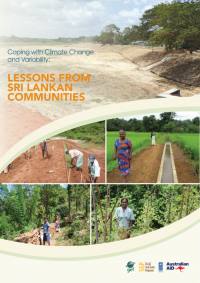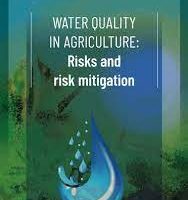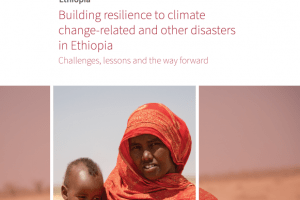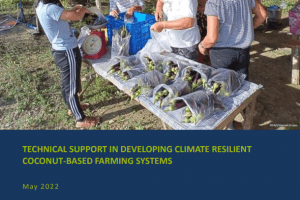Coping With Climate Change and Variability
Lessons from Sri Lankan Communities
UNDP (2016)
Some of the best practices that emerged from project implementation are;
1) Strong local presence of the civil society organizations (CSOs) entrusted with project implementation. Through this, there was greater investment in local capacity building and retention of that capacity in the villages. The CSOs worked closely with locally established committees to design and deliver the interventions. Their local presence, even after the project was completed meant that the CSO remained accountable to the local people.
2) High level of cooperation from government officials, technical institutes, and extension services such as from the Agriculture Instructors working in the districts meant that the government was on board and engaged to provide solutions and ensure post-project sustainability. While there were many teething issues at the beginning of project design and implementation, all pilot projects were completed with satisfactory levels of local government officials’ cooperation.
3) In every location strong and active farmer/community organizations either existed or were initiated through the projects to implement and upkeep the interventions. All meetings and training programmes were conducted with the participation of community members to demonstrate transparency. In many locations farmer organizations were actively engaged in monitoring project progress and supervising any external contractors tasked with civil works during the project.
4) A number of technical best practices can be acknowledged, such as seed and crop selection, agronomic practices such as improving soil quality, crop-livestock integration, land management, water harvesting and improving kitchen gardens were successfully undertaken through the project. These have enhanced the knowledge of marginalized farmers mainly on resilient agriculture and water management.





Add Comment